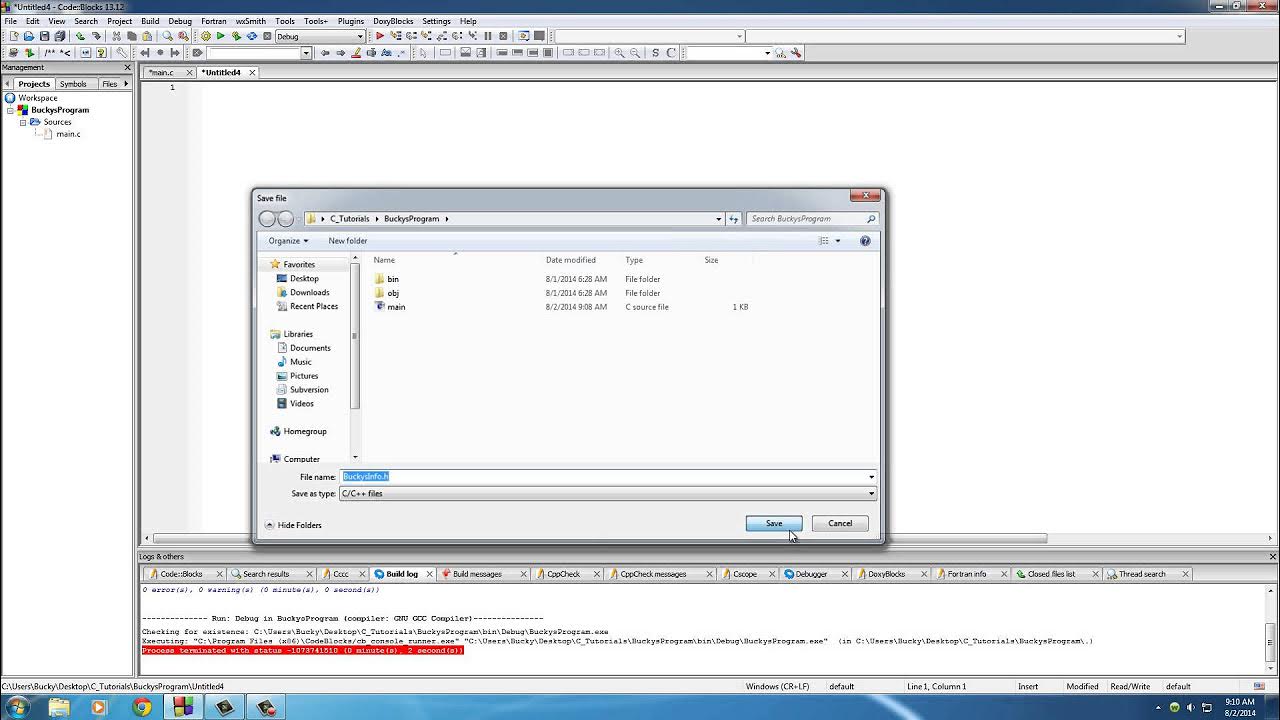Langage C #10 - préprocesseur
Summary
TLDRThis video script covers session number 10 on the C programming language, focusing on preprocessor directives which are essential for understanding modular programming. The instructor explains the 'include' directive for incorporating files and the 'define' directive for creating constants, offering examples like calculating prices with tax. The script also touches on avoiding infinite loops in file inclusion and the importance of these directives in creating libraries. The session aims to provide a solid foundation before delving into more complex topics like pointers in the next session.
Takeaways
- 📄 **Include Directive**: Used to include files before the compilation process, allowing for the use of standard libraries and functions like `printf`.
- 🔁 **Preprocessor**: A program that executes before the compilation, making changes to the code based on directives given.
- 📊 **Define Directive**: Allows for the definition of constants, which can simplify code maintenance by centralizing value definitions.
- 🔗 **Modularity in Programming**: The `define` directive can prevent infinite loops in file inclusion by using `ifndef` and `define` to control the inclusion process.
- 🚫 **Prevention of Infinite Inclusions**: Using `define` with unique identifiers can prevent a file from being included more than once, avoiding compilation errors.
- 🔍 **Conditional Compilation**: The `if`, `ifdef`, `ifndef`, and `endif` directives allow for conditional inclusion of code based on whether a constant is defined.
- ✅ **Code Simplification**: `define` can replace not only constants but also more complex code or function calls, simplifying the source code.
- 📈 **Macro Definitions**: `define` can be used to create macros, which are expanded by the preprocessor before the compilation.
- 📝 **Standard Predefined Macros**: The C language provides predefined macros like `__FILE__`, `__LINE__`, and `__DATE__`, which can be used for debugging and informational purposes.
- 🔬 **Debugging Utilities**: Constants and macros can be used to aid in debugging, such as marking the file name and line number where a function is called.
- 📌 **Pointers Introduction**: The next session will focus on pointers, which are a fundamental concept in C and can be complex to understand but are essential for advanced programming.
Q & A
What is the main topic of the video session number 10?
-The main topic of the video session number 10 is information and the C programming language, focusing on essential theoretical concepts and preprocessor directives.
What is a preprocessor directive?
-A preprocessor directive is a command that is executed by the preprocessor before the actual compilation process. It allows for actions such as including files, defining constants, and other preprocessing tasks.
What does the '#include' directive do in C programming?
-The '#include' directive is used to include the contents of one file into another before the compilation process. It can be used to include standard library files or user-defined header files.
Why is the '#define' directive useful in programming?
-The '#define' directive is useful for defining constants and macros. It can simplify the code by replacing occurrences of a defined constant or expression with its value or the result of the expression.
How can '#define' be used to simplify changing a constant value across a codebase?
-By using '#define' to set a constant value, if the value needs to be changed, it only needs to be updated in one place. The preprocessor will replace all occurrences of the constant with the new value throughout the code.
What is the purpose of using '#ifndef', '#define', and '#endif' in header files?
-These directives are used to prevent header files from being included more than once in a program, which can cause infinite loops or redefinition errors. '#ifndef' checks if the header guard is not defined, '#define' sets it, and '#endif' ends the conditional block.
What does the '#ifdef' directive do?
-The '#ifdef' directive is used to check if a constant or macro has been defined. If it has been defined, the code within the '#ifdef' and '#endif' block will be included in the compilation process.
Can '#define' be used to replace more than just constants?
-Yes, '#define' can also be used to replace entire expressions or even function calls with their respective results, simplifying the code and potentially improving compilation speed.
What are some of the predefined macros provided by the C language?
-Some predefined macros in C include '__DATE__' which represents the date of compilation, '__TIME__' for the time of compilation, and '__FILE__' for the current source file name.
What is the significance of the video session ending with a teaser for the next topic on pointers?
-The teaser for the next topic on pointers indicates that pointers are a crucial and powerful concept in the C language, and the presenter aims to provide a comprehensive explanation to ensure understanding.
Outlines

Esta sección está disponible solo para usuarios con suscripción. Por favor, mejora tu plan para acceder a esta parte.
Mejorar ahoraMindmap

Esta sección está disponible solo para usuarios con suscripción. Por favor, mejora tu plan para acceder a esta parte.
Mejorar ahoraKeywords

Esta sección está disponible solo para usuarios con suscripción. Por favor, mejora tu plan para acceder a esta parte.
Mejorar ahoraHighlights

Esta sección está disponible solo para usuarios con suscripción. Por favor, mejora tu plan para acceder a esta parte.
Mejorar ahoraTranscripts

Esta sección está disponible solo para usuarios con suscripción. Por favor, mejora tu plan para acceder a esta parte.
Mejorar ahoraVer Más Videos Relacionados

Modular Programming, Widely-used C++ functions

Lecture 21 Preprocessor Command #include in C Language Hindi

Assembler Directives/Pseudo Codes in 8086 Microprocessor | 8086 Programming

C Programming – Features & The First C Program

C Programming Tutorial - 10 - Creating a Header File

C_04 Features of C Language | Use of C Language | C Programming Tutorials
5.0 / 5 (0 votes)
